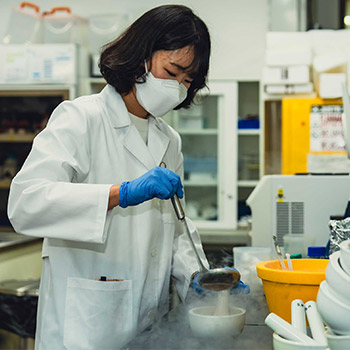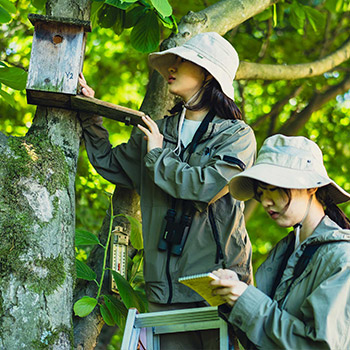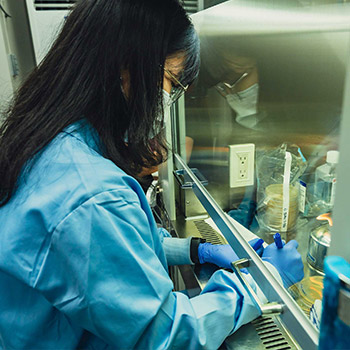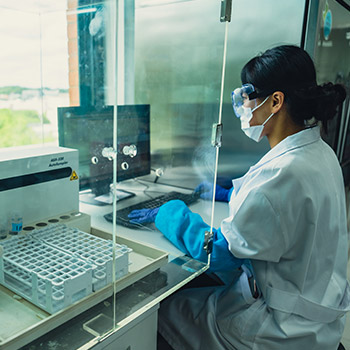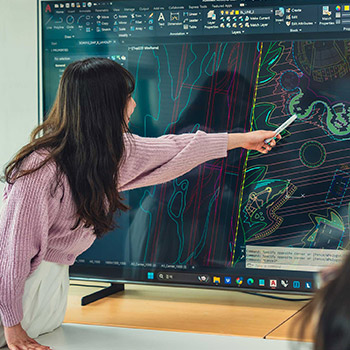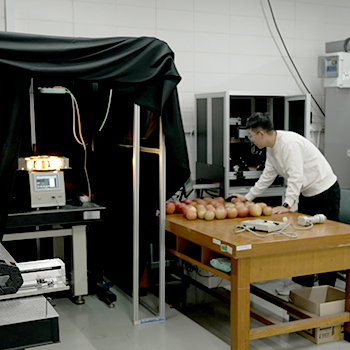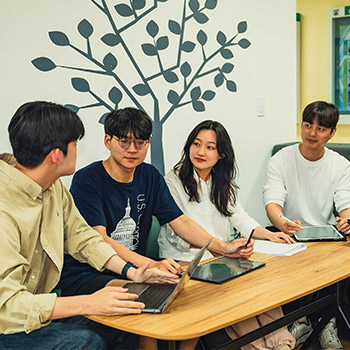Department of Plant Science
☎ +82-2-880-4540
200-4108
Department of Plant Science strives to broaden the scientific knowledge and educate on not only agronomic and horticultural crops but also human resources. Program in Crop Science and Biotechnology, Program in Horticultural Science and Biotechnology, and Program in Agricultural and Vocational Education were fully integrated into one academic organization in 2005 to provide students with a new and improved curriculum. This includes higher education in the natural sciences to enhance students’ fundamental understanding of plants and practical applications within the field of agriculture as well as humanities and social sciences for their knowledge or human resource development.
The crop science and biotechnology program and the horticultural science and Biotechnology program provide students with research opportunities and education on agricultural and horticultural crop production, genetic improvements, and theoretical and applied approaches for plant-environment interactions. Both programs adopt multidisciplinary approaches via cultivation and biotechnology for plant improvement and production. The vocational education and workforce development program is a practical study that develops, manages, and effectively utilizes the unique potential of human beings. The program provides research and education regarding the development of vocational and industrial human resource professionals who are essential in the 21st century.
The Plant Science Department will provide a set of tools to recognize the interconnectedness of plants, environment, and human resources. The faculty members will contribute to the improvement of advanced agriculture and life sciences and vocational human resource management.
The crop science and biotechnology program and the horticultural science and Biotechnology program provide students with research opportunities and education on agricultural and horticultural crop production, genetic improvements, and theoretical and applied approaches for plant-environment interactions. Both programs adopt multidisciplinary approaches via cultivation and biotechnology for plant improvement and production. The vocational education and workforce development program is a practical study that develops, manages, and effectively utilizes the unique potential of human beings. The program provides research and education regarding the development of vocational and industrial human resource professionals who are essential in the 21st century.
The Plant Science Department will provide a set of tools to recognize the interconnectedness of plants, environment, and human resources. The faculty members will contribute to the improvement of advanced agriculture and life sciences and vocational human resource management.

Programs
Program in Crop Science and Biotechnology
The world population is rapidly approaching 7 billion, and increasing by 75 million each year. Feeding the world has always been a major challenge to human ingenuity. Therefore, the application of science to food production has been one of mankind's most important issues.
The Crop Science and Biotechnology program forsters the study of crops and environmental sciences in order to balance the interests of food production, fiber production, and the protection of the environment.
For undergraduate students, the Program in Crop Science and Biotechnology provides courses in crop breeding and genomics, crop molecular genetics and biotechnology, advanced technologies of crop production, agroecology, agrometeorology, environmentally friendly conservation of natural resources, crop physiology and weed science, crop ecology, forage crops, statistics, crop bioinformatics, and many other relevant fields. After the graduation, students will have diverse job opportunities related to agribusiness, banking, education, consulting, or the public sectors such as the Ministry for Food, Agriculture, Forestry and Fisheries (MIFAFF) and the Rural Development Administration (RDA). Graduate students of agronomy can study the specific academic areas in eight laboratories equipped with state-of-the-art experimental facilities and experimental farms. The MS and PhD students can specialize in rice breeding and genomics, crop molecular genetics and biotechnology, soybean molecular breeding, crop physiology and weed science, crop ecology and precision farming, rice crop science and agrometeorology as well as medicinal and industrial crop science. Former MS and PhD graduates are currently working in universities, MIFAFF, RDA, research centers, and banks, as well as in international seed, agrochemical, and biotechnology companies.
The Crop Science and Biotechnology program forsters the study of crops and environmental sciences in order to balance the interests of food production, fiber production, and the protection of the environment.
For undergraduate students, the Program in Crop Science and Biotechnology provides courses in crop breeding and genomics, crop molecular genetics and biotechnology, advanced technologies of crop production, agroecology, agrometeorology, environmentally friendly conservation of natural resources, crop physiology and weed science, crop ecology, forage crops, statistics, crop bioinformatics, and many other relevant fields. After the graduation, students will have diverse job opportunities related to agribusiness, banking, education, consulting, or the public sectors such as the Ministry for Food, Agriculture, Forestry and Fisheries (MIFAFF) and the Rural Development Administration (RDA). Graduate students of agronomy can study the specific academic areas in eight laboratories equipped with state-of-the-art experimental facilities and experimental farms. The MS and PhD students can specialize in rice breeding and genomics, crop molecular genetics and biotechnology, soybean molecular breeding, crop physiology and weed science, crop ecology and precision farming, rice crop science and agrometeorology as well as medicinal and industrial crop science. Former MS and PhD graduates are currently working in universities, MIFAFF, RDA, research centers, and banks, as well as in international seed, agrochemical, and biotechnology companies.

Faculty
| Name | Major | TEL | |
|---|---|---|---|
| Professor Paek, Nam-Chon |
Crop Molecular Genetics | +82-2-880-4543 | ncpaek@snu.ac.kr |
| Professor Yang, Tae-Jin |
Industrial Crops & Genomics | +82-2-880-4547 | tjyang@snu.ac.kr |
| Professor Seo, Hak-Soo |
Molecular Biochemistry | +82-2-880-4548 | seohs@snu.ac.kr |
| Professor Kim, Do-Soon |
Crop Molecular Physiology & Weed Science | +82-2-880-4542 | dosoonkim@snu.ac.kr |
| Professor Kim, Kwang Soo |
Crop Ecology & Informatics | +82-2-880-4936 | luxkwang@snu.ac.kr |
| Associate Professor Jungmin Ha |
Crop genomic breeding and Integrative omics analysis | +82-2-880-4545 | jungmin.ha@snu.ac.kr |
| Assistant Professor Hyungsuk Kim |
Crop production and Remote sensing | +82-2-880-4544 | hyungsuk.kim@snu.ac.kr |
| Assistant Professor Lee, Yoon Kyung |
Crop Evolution and Breeding | +82-2-880-4541 | nknglee2403@snu.ac.kr |

